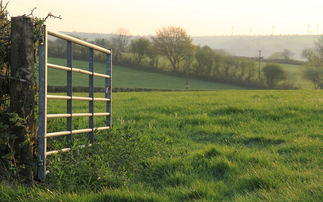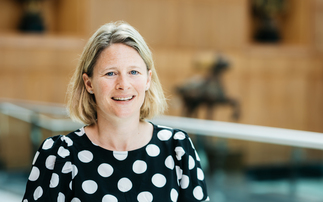Energy Minister Lord Bourne joins 14 other ministers including Bangladesh, Philippines and Marshall Islands to push for long-term goal
A coalition of 15 ministers from countries including the UK, US, Bangladesh and Brazil, appear to be joining forces to ensure the Paris climate deal includes a long term goal that aims to limit global temperature rises to 1.5 degrees Celsius.
Energy and Climate Change Minister Lord Bourne attended a high level meeting this morning, chaired by former US Vice President Al Gore and Mary Robinson, the former Irish president and UN special envoy on climate change, alongside environment ministers from Bangladesh, Brazil, Canada, Philippines and Marshall Islands.
Speaking to BusinessGreen on the sidelines of the Paris climate change talks, Lord Bourne said there had been unanimous support for a long term goal in the text that at least "strives towards 1.5C".
The meeting was also attended by US climate envoy Todd Stern and ministers from Trinidad and Tobago, Sweden, Papua New Guinea, Netherlands, Grenada, Costa Rica, Chile and Ethiopia. It was organised by Friends of the Future of the United Nations.
Stern today told a press conference that the US is "working with other countries on some formulation that would include 1.5C".
Bourne said the group of nations were thinking along the same lines and planned to meet again on Wednesday, potentially with the aim of agreeing language that could be used for a long term goal.
"[We were] talking in similar terms about the long term goal of carbon neutrality of ensuring we can meet something ambitious," he told BusinessGreen. "There was talk of striving for 1.5C, there was a lot of talking about striving below 2C."
A growing number of countries are backing the call by vulnerable nations such as low-lying islands for the text to reflect the fact that if the world warms more than 1.5C, their homes may be lost to rising seas. A coalition of business leaders from powerful companies including L'Oreal, Unilever and Marks & Spencer also backed the 1.5C goal on Sunday, according to the Guardian.
But OPEC nations including Saudi Arabia and Venezuela are trying to block a more ambitious target. India could accept a tougher global warming limit of 1.5C in a proposed UN climate deal, but only on the condition richer nations make radical greenhouse gas cuts to meet it, according to Climate Home.
Bourne admitted that convincing these countries to back 1.5C was still a major block to success. "There's still a lot of work to do," he said.
The United Nations' own estimations reveal that the current climate pledges by 186 nations will still lead to warming of around 3C, far exceeding the 2C that the UN agreed is needed to prevent catastrophic climate change. But low-lying island will still be hit hard with 2C warming so are calling for a more ambitious target of 1.5C.
Bourne said the UK was "strongly aligned" with the small island states and was today due to meet with the Barbados delegation, having already met with Tony de Brum, The Marshall Islands Foreign Minister. "In a sense they are the world's conscience," he said.
"It's important we get an agreement in Paris but it's equally important that we recognise that the job isn't done in Paris. It is a staging post and therefore a long term goal is very important."
Alongside a long term goal, the UK, EU and US are also calling for the Paris deal to commit countries to review their climate actions plans every five years. Although emerging economies such as China and India are resisting the review clause, arguing they are already doing as much as they can to limit temperature rises.
"It's not interfering with a nation's sovereignty," said Bourne. "It's saying this is needed, this is a mechanism to show where we've got to."
But a leading climate scientist today argued that meeting 1.5C is near impossible. Dr Glen Peters, from the Centre for International Climate and Environmental Research in Oslo, Norway, said that to meet the tougher 1.5C target and reduce further the impacts of climate change, emissions would have to come down to zero by between 2025 to 2030.
There was only "an extremely thin chance" of curbing temperature rises to 1.5C, he warned, while even meeting the 2C goal was "very difficult", he said.
Bourne also insisted that not one other delegate had raised concerns at COP21 about the UK's recent watering down of its climate and energy policies.
This article is part of BusinessGreen's Road to Paris hub, hosted in association with PwC.









